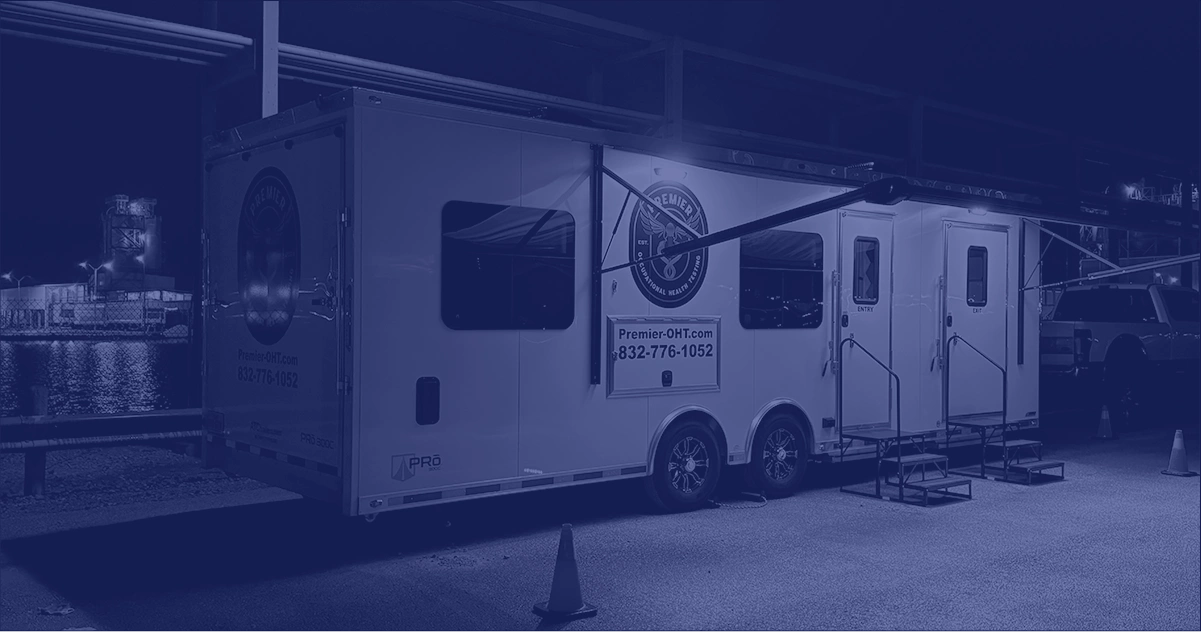Occupational health and safety is a critical concern for businesses. It’s not just about compliance with regulations. It’s about ensuring the well-being of the workforce.
One area that often gets overlooked is respiratory health. Yet, it’s vital in industries where workers are exposed to airborne hazards. Traditional methods of monitoring lung health, such as Pulmonary Function Testing (PFT), have their limitations.
Enter mobile pulmonary function testing. This advancement in technology brings PFTs directly to the workplace. It’s a game-changer for industries where respiratory risks are high.
In this article, we’ll delve into the world of mobile PFTs. We’ll explore how they work, their benefits, and how they’re transforming occupational health. We’ll also look at the role of safety managers in implementing these tests.
Join us as we navigate the advancements in mobile pulmonary function testing. It’s time to take a proactive approach to respiratory health in the workplace.
Understanding Pulmonary Function Testing (PFT)
Pulmonary Function Testing (PFT) measures how well your lungs work. It assesses various lung functions, like volume and airflow. This is essential for diagnosing conditions like asthma or chronic obstructive pulmonary disease (COPD).
In workplace settings, PFTs help identify workers at risk of respiratory problems. Early detection ensures timely intervention. For industries with respiratory hazards, regular testing is crucial. PFTs serve as an early warning system, protecting both employees and businesses. They form a part of a comprehensive occupational health strategy to maintain a safe and productive workplace.
The Evolution of PFT: From Clinic to Mobile Solutions
Traditionally, pulmonary function tests were conducted in clinical settings. This often required employees to travel to healthcare facilities for evaluations. Such arrangements could be both time-consuming and inconvenient for all involved.
Mobile pulmonary function testing emerged to address these limitations. Mobile solutions bring testing directly to workplaces, eliminating the need for off-site visits. This evolution ensures that more employees can be tested efficiently. The shift to mobile PFTs enhances accessibility and supports continuous monitoring of respiratory health. Employers can now ensure worker safety without disrupting operations. This innovation significantly improves both convenience and compliance within various industries.
The Benefits of Mobile Pulmonary Function Testing
Mobile pulmonary function testing offers numerous benefits for businesses and their employees. By bringing testing to the workplace, it reduces downtime. Employees can undergo testing without leaving the job site, minimizing disruptions.
Early detection of respiratory issues is another key advantage. Mobile PFTs facilitate timely identification of potential lung conditions. This proactive approach can prevent serious health problems. Employers benefit from reduced healthcare costs and improved worker health.
A list of notable benefits includes:
- Increased accessibility and convenience for employees
- Early detection of occupational lung diseases
- Improved compliance with health regulations
- Reduced workplace accidents related to respiratory issues
Additionally, mobile PFTs contribute to a safer work environment. They support ongoing health surveillance, helping to monitor lung health over time. This fosters a culture of health and safety, enhancing overall employee well-being. Implementing mobile PFTs strengthens an organization’s commitment to its workforce.
Technological Innovations in Mobile PFT Equipment
Recent advancements have significantly enhanced mobile pulmonary function testing. Modern mobile PFT units are more portable, making them easier to transport and set up. This mobility ensures that testing is accessible to even remote work sites.
Connectivity features have revolutionized data handling in mobile PFTs. Many devices now integrate with digital health platforms. These systems allow for real-time data analysis and remote consultations with specialists. Such capabilities improve diagnostic accuracy and facilitate prompt medical advice. By leveraging these innovations, businesses can ensure comprehensive lung health assessments for their workforce. This represents a critical step forward in occupational health management.
Integrating Mobile PFTs with Telehealth
Telehealth services have seamlessly integrated with mobile pulmonary function testing. This fusion allows for efficient respiratory evaluations at convenient locations. Employees no longer need to travel to medical facilities for specialized consultations, reducing time and effort.
Incorporating telehealth enables remote analysis by respiratory experts. This connectivity ensures prompt interpretation of test results and tailored health recommendations. Such integrations not only enhance healthcare access but also support faster interventions. As a result, companies can maintain vigilant oversight on their workforce’s lung health. This proactive approach fosters a healthier, more responsive work environment.
Mobile PFTs in Industry: Case Studies
Mobile pulmonary function testing (PFT) has proved invaluable across various industries. In construction, on-site testing has identified respiratory risks before they escalate. Workers benefit from regular monitoring, leading to early intervention for potential lung issues. This proactive monitoring has significantly reduced long-term health complications.
The manufacturing sector has also seen success with mobile pulmonary tests. Factories have utilized mobile PFT units to conduct routine checks on employees. This has helped catch respiratory problems early, allowing for quicker treatment and better outcomes. The result is a noticeable decline in absenteeism and improved employee wellbeing.
Healthcare settings have embraced mobile PFTs for staff and patients. Mobile units offer convenient testing without disrupting daily operations. This accessibility ensures thorough respiratory assessments, promoting a culture of health awareness. Success stories highlight improved safety records and morale, solidifying the value of mobile PFTs in diverse work environments.
Ensuring Compliance and Safety with Mobile PFTs
Adhering to safety regulations is crucial for businesses. Mobile pulmonary function testing (PFT) aids in compliance by providing efficient, on-site testing. This aligns with standards set by OSHA and other regulatory bodies. It ensures that all employees undergo necessary lung health evaluations, minimizing non-compliance risks.
Moreover, mobile PFTs enhance workplace safety by quickly detecting respiratory conditions. Early detection helps prevent workplace accidents tied to impaired lung function. By adopting mobile pulmonary tests, companies demonstrate their commitment to employee health. This proactive measure reduces potential liabilities and fosters a safer work environment, boosting overall productivity.
Training and Maintenance: Key to Effective Mobile PFT Programs
Successful mobile pulmonary function testing programs rely on well-trained personnel. Training should cover correct device usage and data interpretation. This ensures accurate test results and reliable assessments of lung health.
Regular maintenance of PFT equipment is also vital. Well-maintained devices deliver consistent performance and reduce downtime. It is essential to schedule routine checks and calibrations. A strict maintenance routine prolongs the equipment’s lifespan and assures its accuracy. Together, training and maintenance are pillars of a proficient mobile PFT program, promoting both operational efficiency and employee safety.
Data Management, Privacy, and Employee Trust
Managing data from mobile pulmonary function tests involves more than collection. It requires meticulous storage and analysis. Secure data handling is crucial to protect sensitive employee information. Implementing robust data privacy measures builds trust between employers and employees.
Transparency is essential in fostering confidence in mobile PFT programs. Employees must understand how data will be used and stored. Informed consent should be a priority, reassuring employees of their privacy rights. By committing to transparent practices, companies reinforce trust and cooperation, crucial components for a successful workplace health initiative.
The Future of Mobile Pulmonary Function Testing
The future of mobile pulmonary function testing holds promise. With continuous advancements, expect more portable, accurate, and user-friendly devices. Integration with AI for analysis and predictive insights will enhance workplace health strategies. Mobile PFTs will likely become a cornerstone in proactive health management, driving better employee well-being and safety.
Conclusion: Embracing Mobile PFT for a Healthier Workforce
Embracing mobile pulmonary function testing is crucial for a healthier workforce. It offers convenience and timely health assessments, boosting workplace safety. By integrating mobile PFTs into health programs, businesses can ensure compliance, enhance employee well-being, and foster a culture of safety, ultimately improving productivity and morale.



